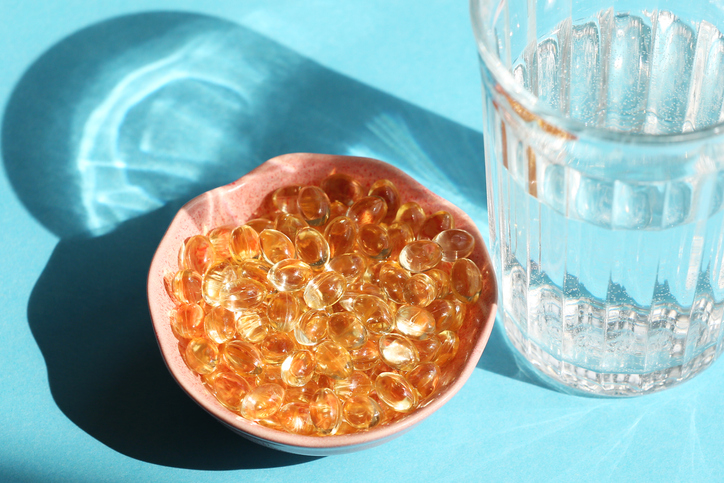New Evidence Calls into Question Products and Supplements for Brain Health
Science or marketing strategies?
Publicado:
Supplements, foods, or medicines that may prevent or treat age-related cognitive decline or dementia have been sold for decades. But where does the science end and where do marketing strategies begin? We reviewed the most recent studies published in scientific journals. This is the conclusion on some of the most popular products.
Benfotiamine
Benfotiamine is a compound that, once it enters the body, is converted to thiamine (better known as vitamin B1). Thiamine is essential for the metabolism of glucose, the brain’s main source of energy. Some studies, such as those published in Journal of Alzheimer’s Disease or in Neuroscience Bulletin, suggest that treatment with benfotiamine may delay cognitive decline in people with mild cognitive impairment or mild Alzheimer’s disease. However, these are small, inconclusive studies. Benfotiamine appears to be safe as long as it is used with a standard dose.Cannabidiol
Cannabidiol, also known as CBD, is one of many active ingredients present in the cannabis plant. Preclinical studies have suggested that it may have neuroprotective properties, such as improved cognitive function and decreased inflammation. However, the majority of clinical studies, including, for example, the one published in Psychopharmacology, have not shown cognitive improvements, and there are no long-term treatment data in humans.

Glucosamine
Glucosamine is a naturally occurring compound in our bodies. It can be found in high concentrations in joints and cartilage. Glucosamine supplements, which are usually derived from seafood, are mainly used to relieve joint problems, although there are also some studies suggesting that they may provide cognitive benefits.

Soy Isoflavones
Soy isoflavones are polyphenols found in soy products and other plants. They preferentially interact with a type of estrogen receptor involved in cognitive functions. For this reason, they have been the subject of various clinical trials. For example, the trial published in Menopause suggested that treatments with soy isoflavones can improve some cognitive functions, although the benefits seem to depend on age, gender, and ethnicity. Intake of soy isoflavones through diet or supplementation is generally considered safe.
Magnesium
Magnesium is an essential mineral for the body and brain, necessary for the functioning of many enzymes in our bodies. The recommended intake can be met through a healthy diet, which mainly includes whole grains, peas, beans, seeds, nuts, fruit, soy products, dairy, green leafy vegetables, and fish.

Metformin
Metformin is one of the drugs prescribed to treat type 2 diabetes. It helps control blood sugar and insulin resistance. Some studies, such as the one in Diabetic Medicine, suggest that metformin treatment is associated with a lower risk of Alzheimer’s disease in people with type 2 diabetes. However, the results are mixed and inconsistent.

Panax Ginseng
Panax ginseng is a plant that is widely used in traditional Chinese medicine. Its root contains compounds called ginsenosides, which have antioxidant and anti-inflammatory effects. Panax ginseng is often pointed to as a good option for improving longevity, promoting cognitive function, and relieving fatigue.
Probiotics
Probiotics are supplements or fermented foods containing potentially beneficial microorganisms, such as bacteria or certain types of fungi, which are designed to modify the microbiome to make it healthier. There are clinical trials, such as the one published in Clinical Nutrition, which have found that probiotics have certain benefits in regulating some cognitive, immunological, and metabolic parameters. And while their consumption is considered safe for most people, no optimal probiotic formulation has yet been identified for any condition.
Selenium
Selenium is an essential trace element that can be obtained through diet, mainly from protein-rich foods such as meat, fish, and legumes. It is important for the functioning of antioxidants in the body. Although some observational studies have shown an association between low selenium levels and dementia, clinical trials analyzing selenium supplementation to prevent or treat dementia, such as the paper published in JAMA Neurology, have not shown positive results. Furthermore, excessive consumption can be toxic.
Green Tea
Green tea is prepared from the dried leaves of Camellia sinensis, and it has various compounds that may be beneficial to brain health, such as caffeine, catechins, and L-theanine. Several observational studies and clinical trials, such as those published in The Journal of Nutrition, Health & Aging or in PLOS One, suggest that green tea consumption could promote cognitive function, though there is no evidence that it is able to prevent dementia.

Vitamins
Vitamins are a group of substances that are necessary for cellular function, growth, and development. Available evidence shows that people who consume high levels of vitamins (primarily C and E) through diet have a lower risk of dementia. However, it is unclear whether this is specifically due to vitamins or whether the key lies in maintaining a healthy diet. Multiple studies have found that the use of supplements does not appear to offer the same protection.
Conclusion
Although many options are discussed or show promise for promoting brain health, in some cases even supported by small studies, the truth is that there is no definitive evidence of a food, supplement, or drug that stops or reverses cognitive decline, which can appear with age or as a result of illness. Therefore, the best way to promote brain health is still to maintain a healthy diet, exercise frequently, and have regular medical check-ups.
Sources consulted:
Alzheimer’s Drug Discovery Foundation, Natural Medicines Comprehensive Database, U.S. National Library of Medicine, National Institute of Mental Health, National Institute of Complementary and Alternative Medicine.


